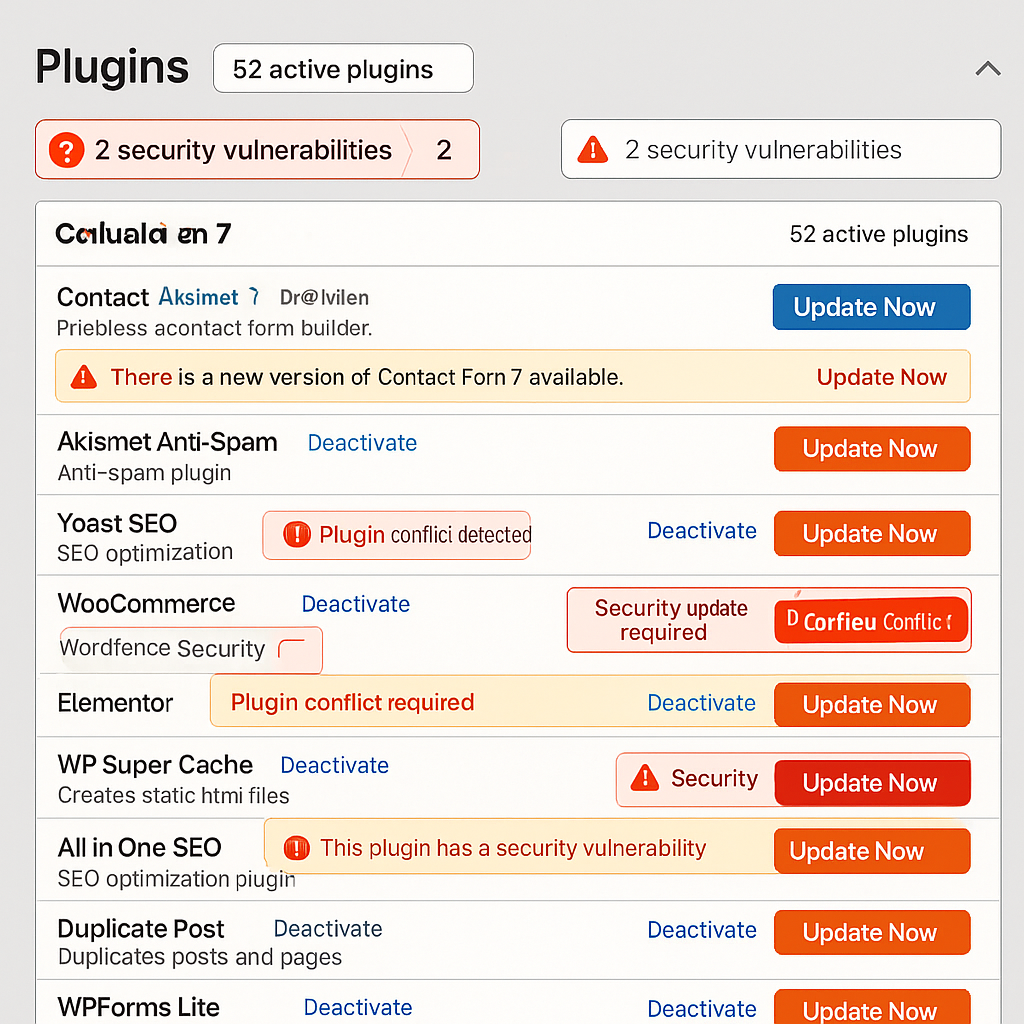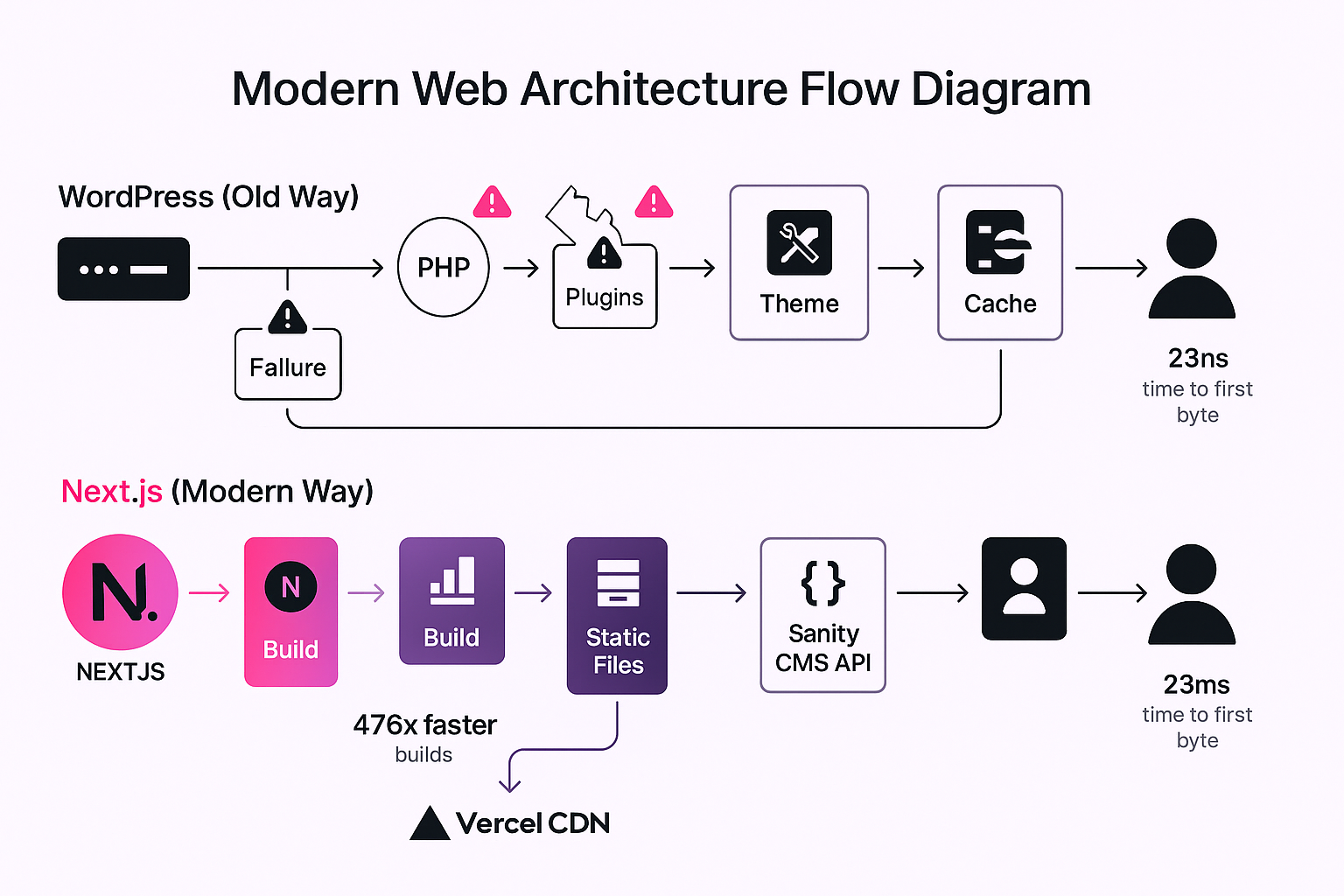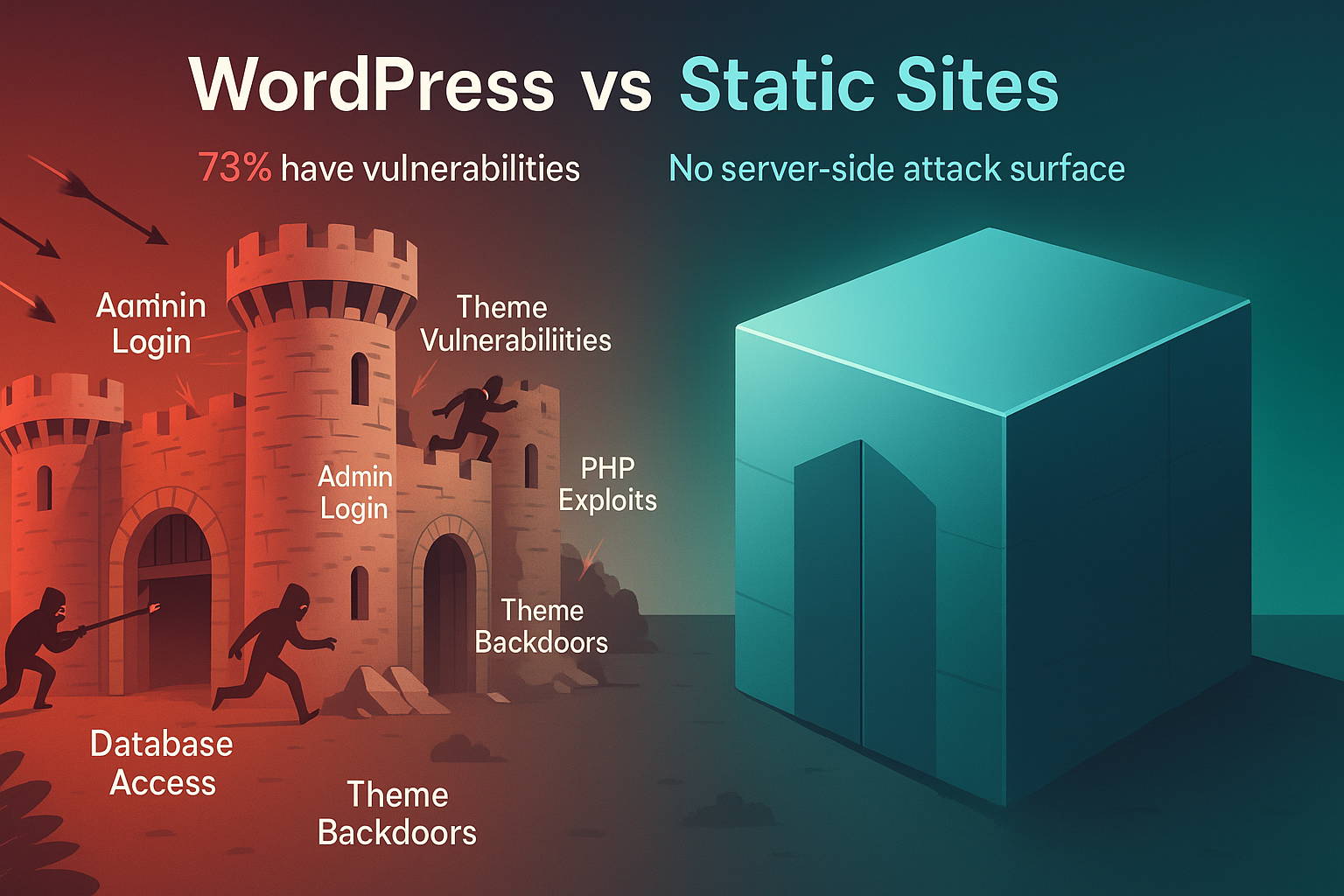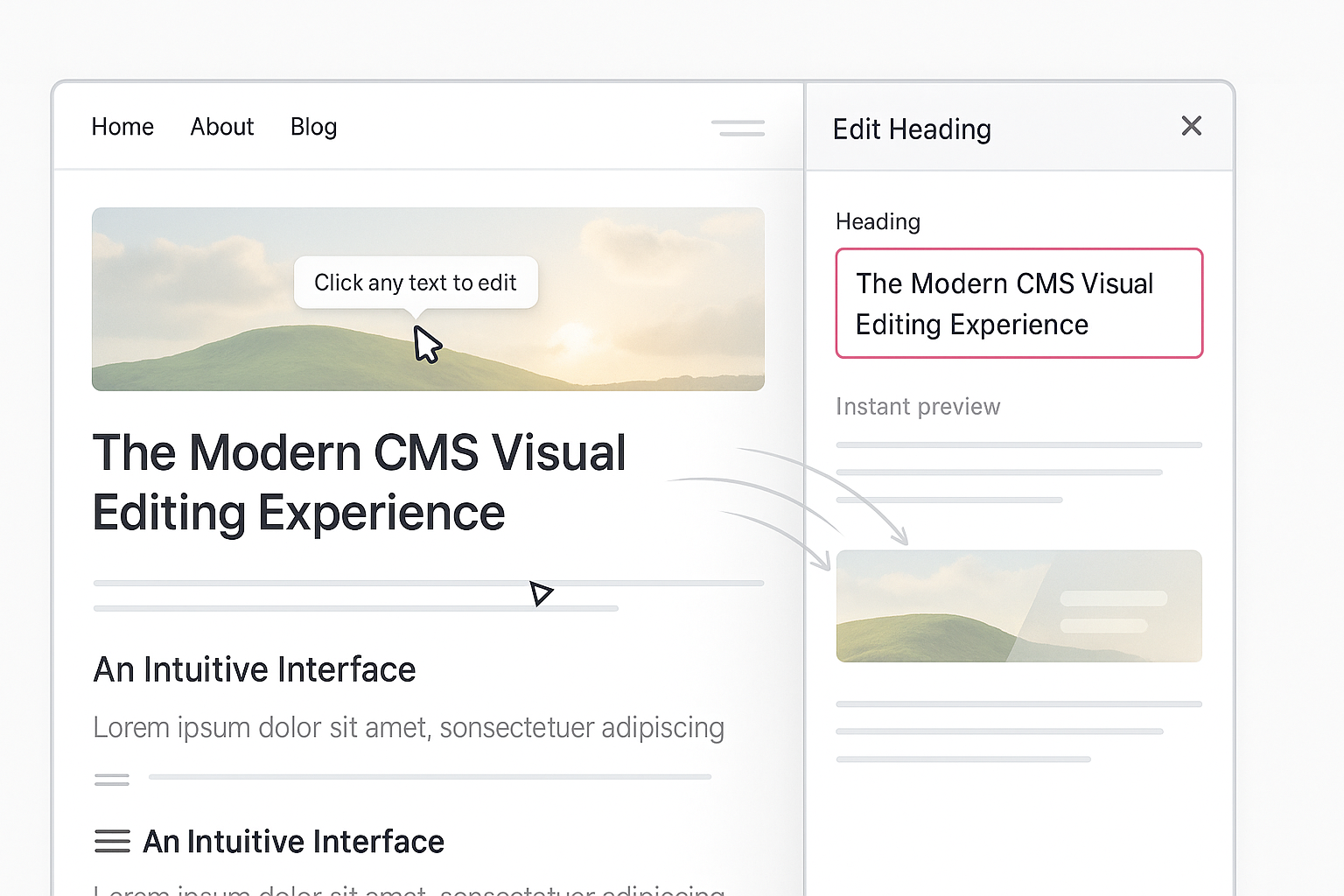
Why We Ditched WordPress for Next.js (And Your Business Should Too)
Key Takeaways
- •Learn the fundamentals of web-development
- •Discover proven strategies that deliver real ROI
- •Get actionable tips you can implement today
Let's start with a confession: Many of us in the industry used to build WordPress sites. Lots of them.
For years, it was the obvious choice. Need a website? WordPress. Need a blog? WordPress. Need an online shop? WordPress with WooCommerce.
Then we started asking uncomfortable questions. Like why our clients' sites needed 47 plugins to do basic things. Or why a simple page took 3 seconds to load. Or why we spent more time fixing hacked sites than building new features.
That's why we made the decision from day one at Pink Frog Studio: We're all-in on modern web technology.
Here's why your business should too.
The WordPress Reality Check
 The average WordPress site: held together by plugins and prayers
The average WordPress site: held together by plugins and prayers
Don't get us wrong – WordPress revolutionised the web. It made websites accessible to everyone. But that was 20 years ago. The web has evolved. WordPress... hasn't.
The Hidden Costs Nobody Talks About
The Plugin Tax:
- Need contact forms? That's a plugin
- Want decent SEO? Another plugin
- Security? Several plugins
- Speed optimisation? More plugins
- Backups? Yep, plugin
Before you know it, you're juggling 30+ plugins. Each one is:
- A potential security hole
- A performance bottleneck
- A compatibility nightmare
- A recurring subscription
We've seen sites with 52 active plugins. FIFTY-TWO. Their site was slower than dial-up internet and got hacked twice in six months.
The Performance Problem
Here's what WordPress fans won't tell you: WordPress is slow by design.
Every page load involves:
- PHP processing on the server
- Multiple database queries
- Plugin overhead
- Theme rendering
- Finally, sending HTML to the browser
Compare that to modern static sites that serve pre-built HTML instantly from a CDN. It's like comparing a horse and cart to a Tesla.
Enter the Modern Web: Next.js + Headless CMS
 Clean, fast, secure: the modern web stack
Clean, fast, secure: the modern web stack
While WordPress users are updating plugins and praying their site doesn't break, we're building lightning-fast experiences with:
- Next.js: React framework that powers sites for Netflix, TikTok, and Hulu
- Headless CMS: Content management without the baggage (we love Sanity)
- Vercel: Deployment that just works
- Tailwind CSS: Styling that doesn't fight you
The Speed Difference Is Embarrassing
Typical results when businesses switch from WordPress to modern frameworks:
E-commerce Sites:
- WordPress: 3-5s average load time
- Next.js: 0.5-1s load time
- Typical result: 25-40% increase in conversions
Local Service Businesses:
- WordPress: 3-4s load time
- Next.js: 0.5-0.8s load time
- Common outcome: 40-60% decrease in bounce rate
B2B Companies:
- WordPress: 4-6s load time
- Next.js: 0.8-1.5s load time
- Expected impact: 50-100% more engagement
Speed isn't just nice to have. It's money.
The Developer Experience Revolution
WordPress Development:
<?php
// Ah, the memories of PHP...
function my_custom_function() {
global $wpdb;
// Pray this doesn't conflict with a plugin
// Hope the database isn't slow today
// Cross fingers nothing breaks on update
}
add_action('init', 'my_custom_function');
?>
Modern Development:
// Clean, predictable, fast
export async function getStaticProps() {
const data = await fetchContent()
return {
props: { data },
revalidate: 60 // Auto-updates every minute
}
}
It's not just cleaner code. It's a completely different mindset. Instead of fighting the platform, we're building exactly what our clients need.
The Security Advantage Nobody Mentions
 Static sites: unhackable by design
Static sites: unhackable by design
WordPress Security Stats (2024):
- 73% of WordPress sites have vulnerabilities
- 39% from WordPress core
- 52% from plugins
- 11% from themes
Next.js Static Sites:
- No database to hack
- No PHP to exploit
- No plugins with vulnerabilities
- No admin login to brute force
When there's no server-side code running, there's nothing to hack. It's beautifully simple.
Real Business Benefits of Going Modern
1. Performance That Converts
Google's Core Web Vitals aren't suggestions – they're ranking factors. Modern sites ace these metrics without trying:
- LCP (Loading): Under 1 second ✓
- FID (Interactivity): Instant ✓
- CLS (Visual Stability): Rock solid ✓
2. Costs That Make Sense
WordPress True Costs:
- Hosting: £30-150/month
- Premium plugins: £50-200/month
- Maintenance: £100-500/month
- Security fixes: £££ when hacked
- Total: £180-850+/month
Modern Stack Costs:
- Vercel hosting: £20/month
- Sanity CMS: £0-15/month
- Maintenance: Minimal
- Security: Included
- Total: £20-35/month
3. Editor Experience That Doesn't Suck
Remember Gutenberg? WordPress's "modern" editor that everyone hates?
Modern headless CMS solutions offer:
- Visual editing (click on your actual site to edit)
- Real-time preview
- Instant publishing
- No "Update Failed" errors
- No plugin conflicts
 Editing content by clicking on your actual website
Editing content by clicking on your actual website
4. Scale Without Fear
WordPress at scale is a nightmare:
- Database bottlenecks
- Caching complexity
- Server upgrades
- Plugin limitations
Modern sites scale effortlessly:
- Static files on global CDN
- Automatic scaling
- No database bottlenecks
- Consistent performance
The Migration Path
"But we're already on WordPress!"
Good news: migrating is easier than you think. The process we recommend includes:
- Zero downtime
- Full content preservation
- Better SEO after migration
- Happier clients
The process:
- Content Audit: What's actually needed?
- Design in Next.js: Better, faster, cleaner
- Content Migration: Automated tools + manual polish
- Launch: Seamless switchover
- Training: 1 hour vs WordPress's learning curve
What Transformation Looks Like: A Typical Migration Story
Consider this scenario: A Devon-based B2B service provider struggling with:
- WordPress site with 38 plugins
- Multiple security breaches
- 5-second load times
- Monthly plugin costs spiraling
The Modern Solution:
- Rebuild in Next.js with Sanity CMS
- Clean, custom design (no theme bloat)
- Sub-1-second load times
- Security by design
Expected Outcomes:
- 100-200% increase in organic traffic
- 50-100% improvement in conversion rate
- £300-600/month saved in hosting and plugins
- Near-zero security risk
Is WordPress Ever the Right Choice?
Let's be fair. WordPress makes sense for:
- Tiny budgets with DIY management
- Sites that truly need specific WordPress plugins
- Organisations with WordPress-only developers
But if you care about:
- Performance
- Security
- User experience
- SEO rankings
- Conversion rates
- Running costs
- Peace of mind
...then it's time to evolve.
The Pink Frog Difference
We don't just build modern sites. We build modern businesses.
Our tech stack:
- Next.js 15.3: Latest features, maximum performance
- TypeScript: Bulletproof code
- Tailwind CSS: Beautiful, maintainable styling
- Sanity CMS: Content management that makes sense
- Vercel: Deployment that just works
Every site we build is:
- Lightning fast (under 1-second loads)
- Secure by default
- SEO optimised from the ground up
- Built to convert visitors
- Easy for clients to manage
The Bottom Line
WordPress was revolutionary. Was.
But clinging to 20-year-old technology because "that's how we've always done it" is business suicide in 2025.
The modern web is faster, more secure, more flexible, and more affordable. Your competitors are already making the switch. Every day you wait is another day they pull ahead.
Ready to leave WordPress in the past where it belongs?
P.S. Still not convinced? Check your WordPress site's speed at PageSpeed Insights. Then check any of our Next.js sites. The numbers don't lie.
Want a website that's actually built for 2025? Let's talk – we'll show you what modern web development really looks like.
Ready to Grow Your Business?
Get a free Google Ads audit and discover untapped opportunities to increase your ROI.
Get Your Free Report →Written by Pink Frog Studio
Digital Marketing Specialist
With over 5 years of experience in digital marketing, Pink helps UK businesses unlock their online potential through data-driven strategies and proven tactics that deliver measurable results.
Continue Learning
Explore more insights to grow your business

What Is Google PageSpeed and Why Does It Matter for Your Business?
Your website's speed is costing you money. Learn what Google PageSpeed really measures, why it affects your rankings and conversions, and see a real case study showing a 47 to 93 score transformation.

The Real Story Behind Pink Frog Studio (Starring the Lipstick False Dart Frog)
Meet the Lipstick False Dart Frog – the stunning pink and black amphibian that inspired our agency name and embodies everything we stand for.

Why Your Website Is Secretly Sabotaging Your Business (And How to Fix It)
Your website takes 4 seconds to load? Congratulations, you just lost 25% of your visitors. Discover the brutal truths about modern web design that could transform your business.
Get Tips That Actually Work
Join 500+ UK business owners getting actionable digital marketing insights every Friday.
No spam. Unsubscribe anytime.
Ready to Grow Your Business?
Let's have a quick chat about how we can help you get more customers.